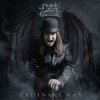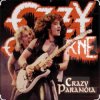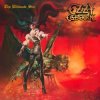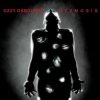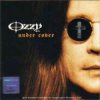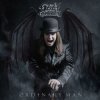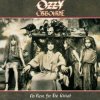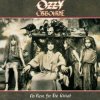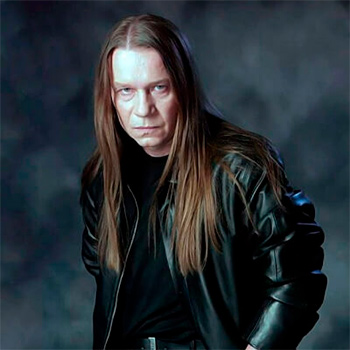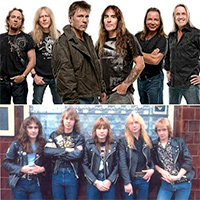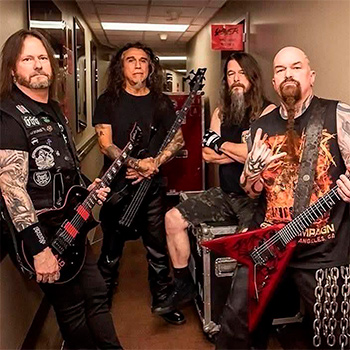
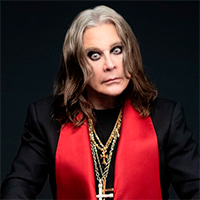
Ozzy Osbourne (birth name John Michael Osbourne; born December 3, 1948 — died July 22, 2025, Birmingham, England) was a British vocalist, songwriter, showman, and one of the key architects of heavy metal. He first rose to wide fame as the frontman of Black Sabbath and later as a successful solo artist who influenced several generations of musicians.
Early Years
Ozzy grew up in a working-class family in industrial Birmingham during a period of economic decline. As a child he faced dyslexia and bullying and left school early. During this time Osbourne became passionate about music, listened to The Beatles, and said they were the reason he wanted to become a singer.
Before his music career, Osbourne worked various jobs as a laborer, gas welder, and metalworker, and even spent a short time in jail for a minor offense.
Founding Black Sabbath
In the late 1960s, Ozzy met guitarist Tony Iommi, bassist Geezer Butler, and drummer Bill Ward. They formed the band Earth, soon renamed Black Sabbath.
In 1970 the band released its self-titled debut album. Heavy riffs, a dark aesthetic, and Osbourne’s “ritual” vocal style became the foundation of what later came to be called heavy metal.
The albums “Black Sabbath” (1970), “Paranoid” (1970), “Master of Reality” (1971), and “Vol. 4” (1972) became cult classics. Tracks like “Paranoid,” “Iron Man,” “War Pigs,” and “Black Sabbath” entered the genre’s bedrock.
Black Sabbath repeatedly found itself at the center of controversy: the band was accused of satanism, although the members themselves denied any connection to the occult.
Dismissal and Solo Career
In 1979 Osbourne was dismissed from Black Sabbath due to addiction issues and rising tensions within the band. It proved to be a critical turning point.
With the help of manager and future wife Sharon Arden, he assembled a new band and recorded “Blizzard of Ozz” (1980). The album became a bestseller and yielded the hit “Crazy Train.” A key role was played by guitarist Randy Rhoads, regarded as one of the most innovative guitarists of the 20th century.
Tragedy and Continued Rise
In 1982 Randy Rhoads died in a plane crash during a tour. Osbourne fell into a deep depression, but continued his career.
He later released:
- “Diary of a Madman” (1981)
- “Bark at the Moon” (1983)
- “The Ultimate Sin” (1986)
Osbourne’s vocal style — a blend of hysteria, funereal melodicism, and shades of “madness” — became his calling card.
Commercial Peak
In 1991 he released “No More Tears”, considered one of the finest albums in his catalog. “Mama, I’m Coming Home” became a global hit, and the video went into heavy rotation on MTV.
Television Fame — “The Osbournes”
From 2002 to 2005 MTV aired the reality show “The Osbournes”, which portrayed the musician’s family life. The show became one of the network’s most popular and turned Osbourne into a mainstream pop-culture figure.
Viewers saw him as a man — tough, funny, chaotic, yet kind.
Return to Black Sabbath
In 1997 Osbourne performed with Black Sabbath again, and in 2013 the band released its final studio album, “13”, which won a Grammy.
In 2017 Black Sabbath announced the farewell tour “The End” and concluded its activities.
Recent Releases and Health
In 2020 Osbourne released “Ordinary Man” featuring:
- Slash,
- Duff McKagan,
- Elton John,
- Chad Smith.
In 2022 he released “Patient Number 9”, which won a Grammy for Best Rock Performance.
However, he faced serious health challenges:
- Parkinson’s disease,
- aftereffects of spinal injuries,
- surgeries.
Despite this, he continued to record music and make media appearances.
In 2024 Osbourne was inducted into the Rock and Roll Hall of Fame as a solo artist (previously with Black Sabbath). In January 2023 he announced the end of large-scale touring, but made occasional appearances through 2025.
Image and Controversies
Osbourne was known for eccentric antics:
- he bit the head off a bat (1982),
- received performance bans in several U.S. states,
- was accused of promoting suicide (charges were dismissed).
These episodes only strengthened his cult status.
Family Life
Ozzy was married to Sharon Osbourne (since 1982). Children:
- Aimée
- Kelly
- Jack
Sharon played a crucial role in rebuilding his career and personal life.
Awards and Achievements
- induction into the Rock and Roll Hall of Fame (with Black Sabbath),
- two Grammy Awards,
- a star on the Hollywood Walk of Fame,
- one of the most successful solo careers in rock.
Influence
Osbourne:
- was regarded as a founder of metal vocals,
- influenced Metallica, Slipknot, Judas Priest, Iron Maiden,
- created the Ozzfest festival, where dozens of metal bands got their start.
His style — a fusion of horror, theatricality, depression, and self-irony — helped shape the visual language of metal culture.
Fun Facts
- in his youth, Osbourne tried stand-up comedy, which influenced his stage manner,
- he had a long friendship with Lemmy Kilmister (Motörhead),
- industrial Birmingham inspired him to make the rock sound heavier,
- his voice was instantly recognizable for its unique inflection and vibrato.
Final Concert
On July 5, 2025, Osbourne played the farewell charity concert Back to the Beginning at Villa Park in Birmingham and announced it would be his last live performance due to health reasons. The original Black Sabbath lineup reunited for the first time in 20 years. Guests included members of Metallica, Slayer, Alice In Chains, as well as Duff McKagan, Slash, Billy Corgan, Fred Durst, and Tom Morello.
Death
On July 22, 2025, seventeen days after the farewell concert, Ozzy Osbourne died at the age of 76 from a myocardial infarction. He passed away surrounded by family. Tributes poured in from colleagues and stars — from Elton John to members of Metallica, Aerosmith, Coldplay, and many others.
Conclusion
Ozzy Osbourne was more than a musician; he was a cultural icon. He helped midwife the birth of heavy metal, endured a split from a legendary band, personal tragedies, addiction, recovery, and a powerful media persona. His solo career became a model of creative rebirth, and he proved that rock is not only a sound but a character.
Even after more than half a century on stage, his legacy continued to inspire new generations. Osbourne’s music, festivals, image, and unmistakable voice are forever woven into the history of global rock.

